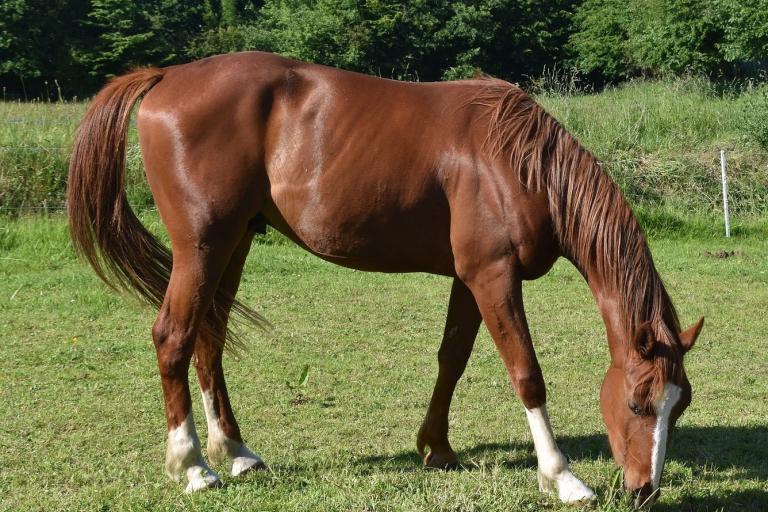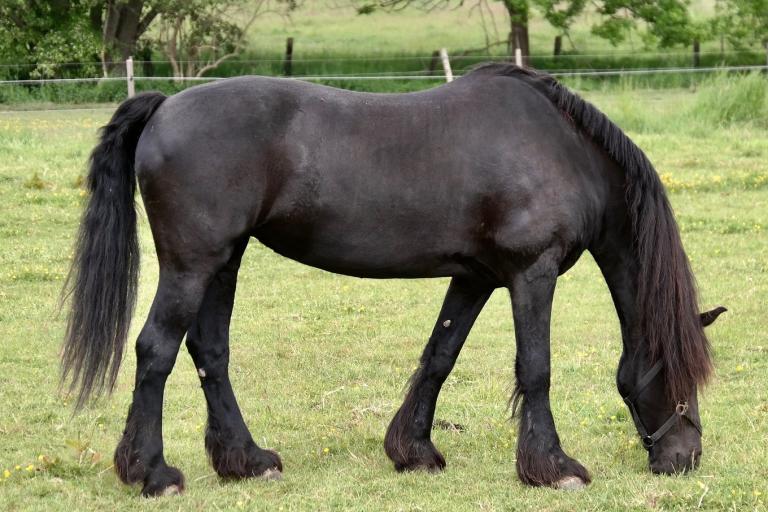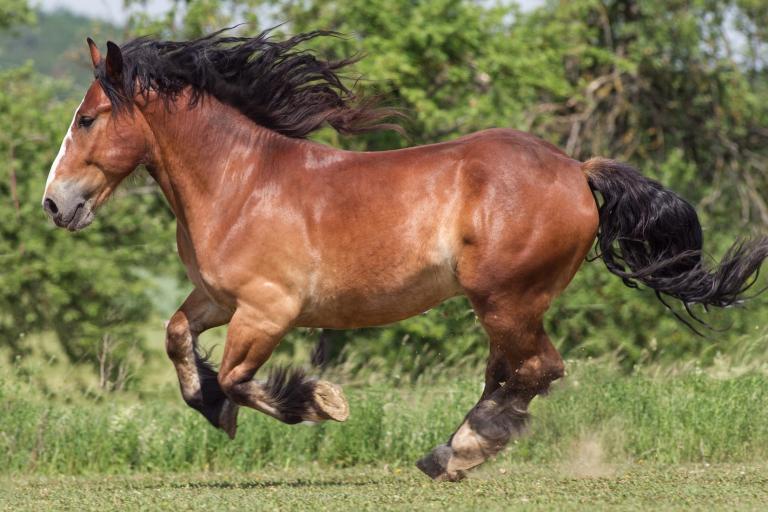Extension | Chestnut (Base colour E-Locus Horse)
Three base colours occur in the horse: Chestnut (reddish), Black and Bay (Brown).The base colour is determined by the combination of the Extension locus (E) and Agouti locus (A).
The Extension locus (E) controls the production of the black pigment 'eumelanin' in the melanocytes.
If the gene is altered and non-functional (ee), the black pigment cannot be produced and the horse has a chestnut coat colour. Horses with one or two intact copies of the extension gene (EE, Ee) are either bay or black (depending on the Agouti gene).
Genetic Test: available in Shop
Also in the Base Colour package
General Information
- The Extension gene controls the production of the black color pigment 'eumelanin' in the melanocytes.
- If the gene is altered and non-functional (ee), the black pigment cannot be produced → the horse has a chestnut (red) coat colour.
- Horses with one or two intact copies of the extension gene (EE, Ee) are either bay or black (depending on the Agouti locus).
Test Information
Locus Informationen: E-Locus
This test detects two mutations (c.248C>T and c.250G>A) in the MC1R gene.
Test in Shop
Genotype and Lab Report
Inheritance: autosomal recessive
→ Horses with two copies of this variant (e/e) are chestnut (red, sorrel) in colour. Horses with only one copy of this variant (E/e) are bay or black (depending upon their variants at the Agouti locus), but carry chestnut. A horse that does not carry the variant (E/E) cannot have a chestnut foal, even if bred to a chestnut horse.
Genotype
E/E = Two functional copies
The horse is bay or black, depending on the A locus.
E/e = One functional and one non-functional copy
The horse is bay or black, depending on the A locus. It carries one copie of chestnut.
e/e = Two non-functional copies
The horse has a chestnut coat colour, independent of the A locus.
Appearance
Literature
Marklund, L., Moller, M.J., Sandberg, K., Andersson, L.: A missense mutation in the gene for melanocyte-stimulating hormone receptor (MC1R) is associated with the chestnut coat color in horses. Mammalian Genome 7:895-899, 1996. Pubmed reference: 8995760.
Wagner, H.J., Reissmann, M.: New polymorphism detected in the horse MC1R gene. Anim Genet 31:289-90, 2000. Pubmed reference: 11086549.
Further information is available at Online Mendelian Inheritance in Animals.



